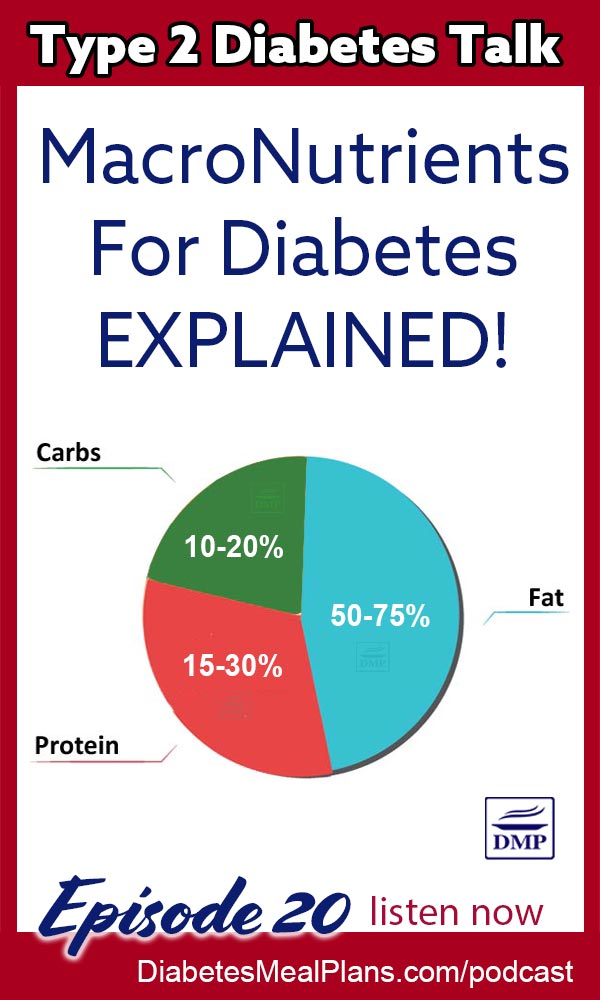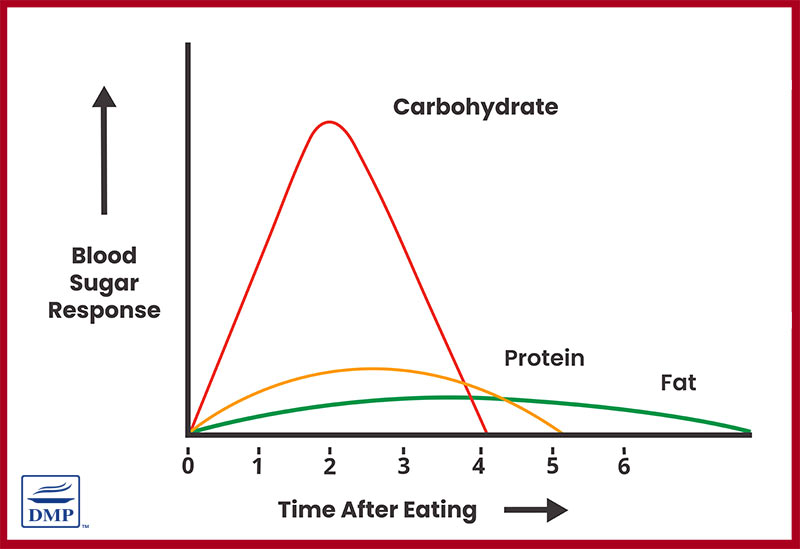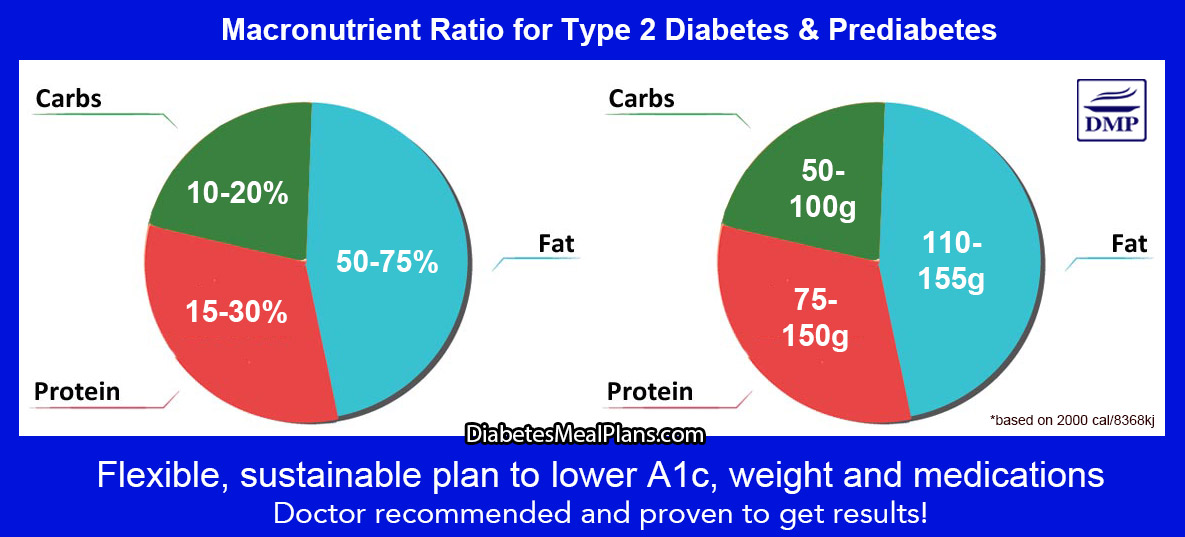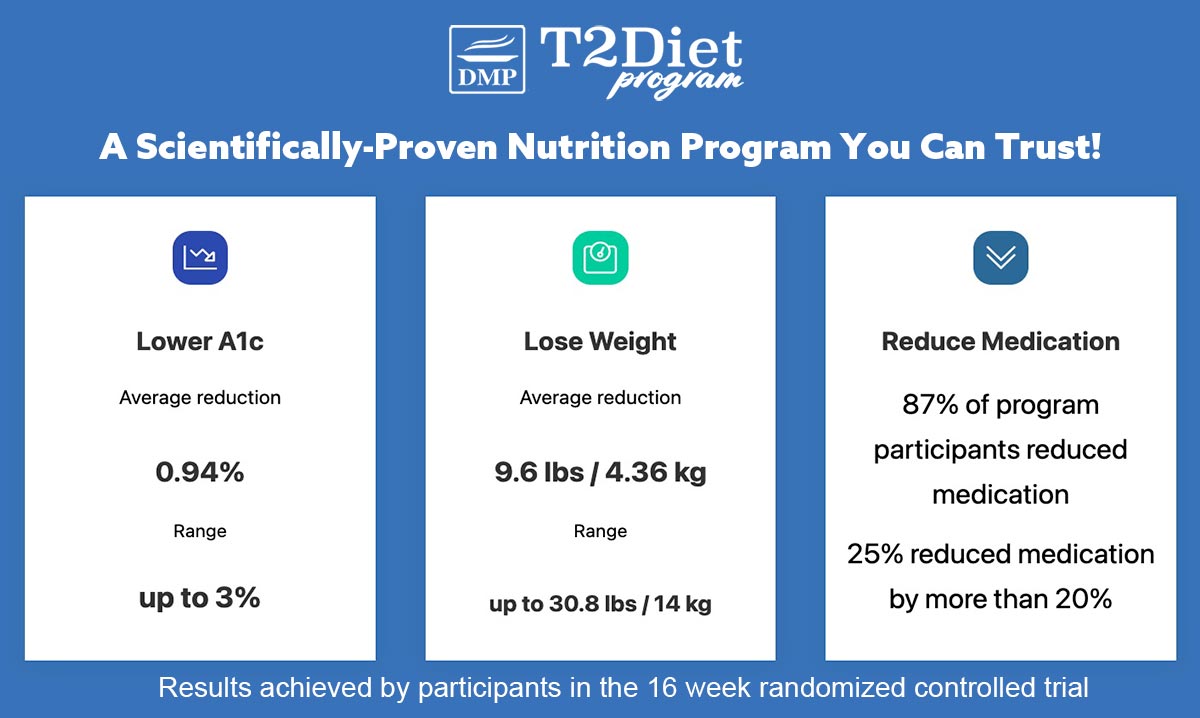This episode demystifies the roles of carbohydrates, proteins, and fats in diabetes management, emphasizing the importance of quality and balance in macronutrient intake. It guides you through selecting the right types of each macronutrient to maintain healthier blood sugar levels, manage weight, and potentially reduce medication needs, offering a comprehensive approach to optimizing diabetes health through diet.
LISTEN TO THE PODCAST
CHAPTERS
0:00 Exploring Macronutrients
2:30 What Is Food
4:26 Understanding Macronutrients
6:26 Protein
11:44 Fat
15:41 Carbohydrates
22:54 Macronutrients and Blood Sugar
Support the podcast by leaving a 5-star rating and review on Apple, Spotify or our Website – Thank You!
Macronutrients for Diabetics Explained
As a diabetic, you’ve probably heard of macronutrients, especially carbohydrates, which do get mentioned a lot. Then you might have heard of fats and the numerous reasons why you should avoid them.
Without a doubt, navigating the complex world of nutrition can often seem like a daunting task, especially when you have type 2 diabetes or prediabetes. There are a lot of myths and confusions out there on the wild west web.
Yet, understanding the power of macronutrients can be a game-changer for maintaining healthier blood sugar levels and overall well-being. So let’s deal with the facts instead of believing the fiction.
In this 20th episode of Type 2 Diabetes Talk, we explore the roles of carbohydrates, proteins, and fats, and how the quality of these macronutrients can impact your diabetes management.

Carbohydrates
Carbohydrates often bear the brunt of the blame in discussions about diabetes. However, it’s not carbs per se that are the issue; it’s the type of carbs and the quantity consumed that matter.
Complex carbohydrates, found in whole, unprocessed foods like vegetables, legumes, and fruits, provide the body with fiber and essential nutrients. These types of carbs are naturally lower in carbs and slower to digest, meaning they can help in maintaining steady blood sugar levels compared to their refined counterparts.
Complex carbs like whole grains however, need to be monitored closer, as they are naturally higher in carbs and ALL carbs break down to glucose in your bloodstream and influence your blood sugar levels.

Protein
Proteins, the fascinating building blocks of our bodies, are essential for repairing tissues and maintaining muscle mass. You need to ensure you build your meals from a protein-rich foundation. Plus, protein’s impact on blood sugar is minimal compared to carbohydrates, making them a crucial component of a diabetes-friendly diet.
Proteins also help in satiating hunger, which can prevent overeating and aid in sustainable weight loss and weight management—a vital aspect of diabetes care.
Fats
Fats have often been misunderstood, with many assuming that all fats are harmful. The truth is, our bodies need a balanced intake of fats, including saturated, monounsaturated, and polyunsaturated fats.
Fats are necessary for absorbing vitamins, protecting organs, and providing energy. Importantly, fats do not have a direct impact on blood sugar levels, making them an important part of a diabetes management plan. Fat is an essential nutrient!
Ideal Macronutrient Ratio for Diabetes
Dr Jedha’s recommended macronutrient ratio to achieve ideal blood sugar, weight loss and medication reduction with diabetes is 10-20% carbs, 15-30% protein, and 50-75% fat.

Our members have used these macronutrient ratios for over a decade to achieve amazing results. And Dr Jedha’s T2Diet Program clinical trial proved these ratios dramatically improve A1c, weight, BMI and reduce medications!

Focus on Nutrient Dense Foods
Consuming whole, minimally processed foods can make a significant difference to your diabetes health. Whole foods provide a synergy of nutrients that ultra-processed foods lack.
Every meal presents an opportunity to nourish the body with the nutrients it needs to function optimally. By making informed choices and understanding the science behind macronutrients, you can take control of your health and enjoy the benefits of a balanced diet—lower blood sugar and A1c, weight loss and reduced medication requirements!
Achieving optimal diabetes health doesn’t have to be about strict restrictions or unappetizing diets. It’s about making informed choices and embracing the variety of nutrients that nature provides.
By focusing on quality macronutrients and the power of whole foods, you can take significant strides toward better diabetes health.
Remember, diet and nutrition are the primary treatment strategy for optimizing your diabetes health. Your health journey is a journey of discovery, one that prioritizes the joy of eating and the importance of nourishment. Need help with your eating plan? Join Us As A Member Today
Subscribe to Type 2 Diabetes Talk on: Apple | Spotify | Amazon Music | Audible | YouTube | Podcast Index | Player FM | and more…


Leave a Reply